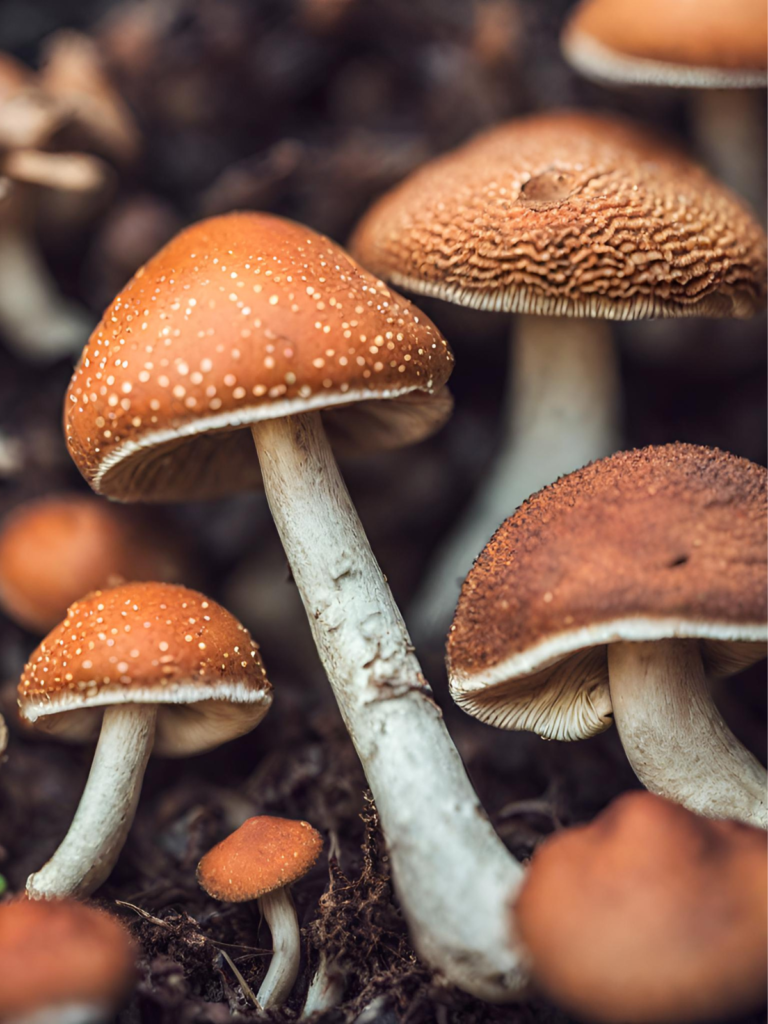Can You Smoke Shrooms?
Mushrooms, or “shrooms,” have long fascinated hallucinogenic seekers. Traditional shroom usage requires swallowing, however smoking has been considered. This article examines the legality, ethics, hazards, and practicalities of smoking shrooms, a contentious issue.
Can You Smoke Shrooms?
Introduction
Smoking shrooms raises fascinating concerns regarding their pharmacological qualities and how people use them. Understand what shrooms are and why psychedelic devotees love them before diving in.
So what are mushrooms?

Can You Smoke Shrooms?
Psychedelic mushrooms, or mushrooms, include hallucinogenic substances like psilocybin and psilocin. These chemicals modify perception, emotion, and spirituality by interacting with brain serotonin receptors. Numerous civilizations have treasured these mushrooms for their supposed potential to elicit visions and spiritual journeys.
Shroom Consumption Methods
Traditional shrooms are eaten raw, brewed into tea, or cooked into recipes. Recently, microdosing—taking sub-perceptual psychedelic doses—has become popular for its cognitive-enhancing and mood-stabilizing benefits. Shroom smoking is a divergence from these practices.
Possible and Effective Smoking Shrooms
Shroom smoking is a controversial topic in the psychedelic subculture. Shrooms have heat-sensitive hallucinogenic chemicals, unlike cannabis. Thus, smoking shrooms may not deliver their psychotropic effects, making it inconvenient and wasteful.
Smoking shrooms may generate moderate psychedelic effects, although they are inconsistent and short-lived. Scientific study is needed to prove smoking shrooms work.
Health Risks of Smoking Mushrooms
Smoking shrooms has health hazards beyond its usefulness. Inhaling combusted particles from smoking any material may irritate the lungs and damage them over time. Heat from smoking may change shrooms’ chemical makeup, causing hazardous consequences.
Psychological consequences of smoking shrooms are unknown. Shrooms may induce deep introspection and emotional breakthroughs, but breathing shroom smoke may harm mental health and put those with psychiatric disorders at danger.
Legal Implications
Shrooms are lawful in certain nations for religious or therapeutic usage, whereas others categorize them as prohibited narcotics. The US classifies psilocybin-containing mushrooms as Schedule I substances due to their significant abuse potential and lack of medicinal utility.
Shroom smoking legality is a sensitive topic. The act of smoking shrooms might lead to criminal prosecution or other legal punishments.
Misconceptions
Skepticism and disinformation surround smoking shrooms, as with any difficult issue. Misconception: smoking shrooms intensifies their hallucinogenic effects. Scientific data does not support this assertion, thus consumers should be cautious when contemplating alternate consumption techniques.
Discussions concerning psychedelics must prioritize safety. Shrooms are less dangerous than other drugs, yet careless usage may harm susceptible groups. Promoting harm reduction requires dispelling shroom misconceptions and educating the public about its hazards and advantages.
Moral Issues
Psychedelic discourse is heavily influenced by ethics. Protecting shroom ecosystems and respecting indigenous cultures who utilize them in rituals is crucial. To reduce hazards, psychedelic experimenters must emphasize safety, consent, and informed decision-making.
Research and Studies
Despite the increased interest in psychedelic research, smoking shroom studies remain rare. Most study has focused on shrooms or synthetic psilocybin. Closing the smoking shroom science gap might reveal their safety, effectiveness, and medicinal potential.
Alternatives to Smoking Shrooms
Safer and more dependable shroom ingestion techniques are available for therapeutic use. In microdosing, sub-perceptual shroom dosages are taken regularly to improve mood, creativity, and cognition without hallucinations.
Therapists can provide safe and helpful psychedelic experiences. A therapist or facilitator may help people explore shrooms’ healing potential in a controlled setting to minimize side effects and maximize therapeutic results.
Conclusion
Finally, smoking shrooms is an issue of safety, legality, and ethics, not just technological capability. Smoking shrooms may appeal to some, but the lack of scientific proof and health dangers merit additional inquiry.
Psychedelic drugs must be used with respect, mindfulness, and knowledge of their possible side effects while society adjusts to their usage. Shrooms may be eaten, smoked, or used in other ways to promote introspection, healing, and spiritual development if handled with respect.
Related post:https://www.leafly.com/news/health/can-you-smoke-shrooms
Related post:https://foodiedelightpk.com/how-to-make-5-vegan-mushroom-recipes/


